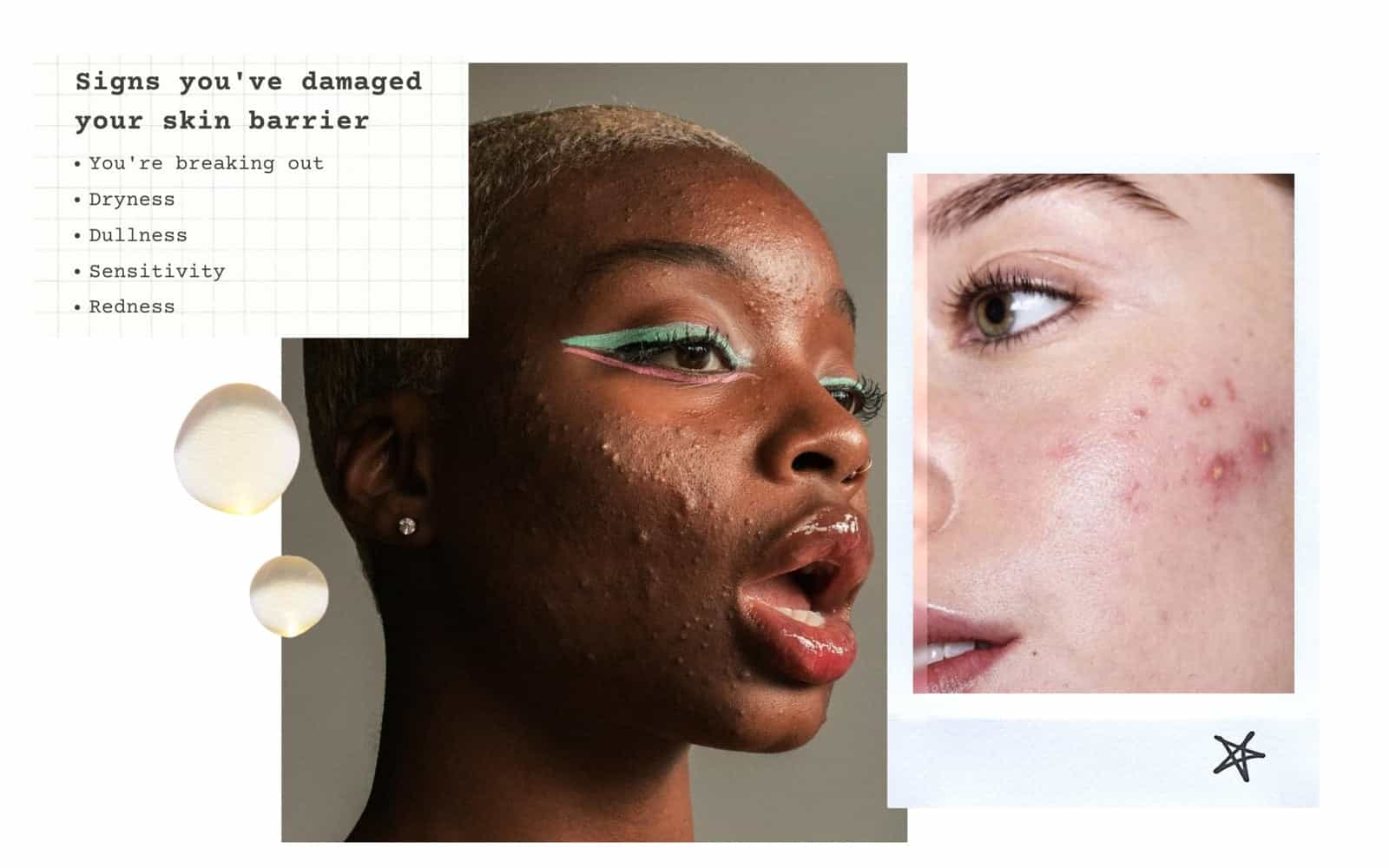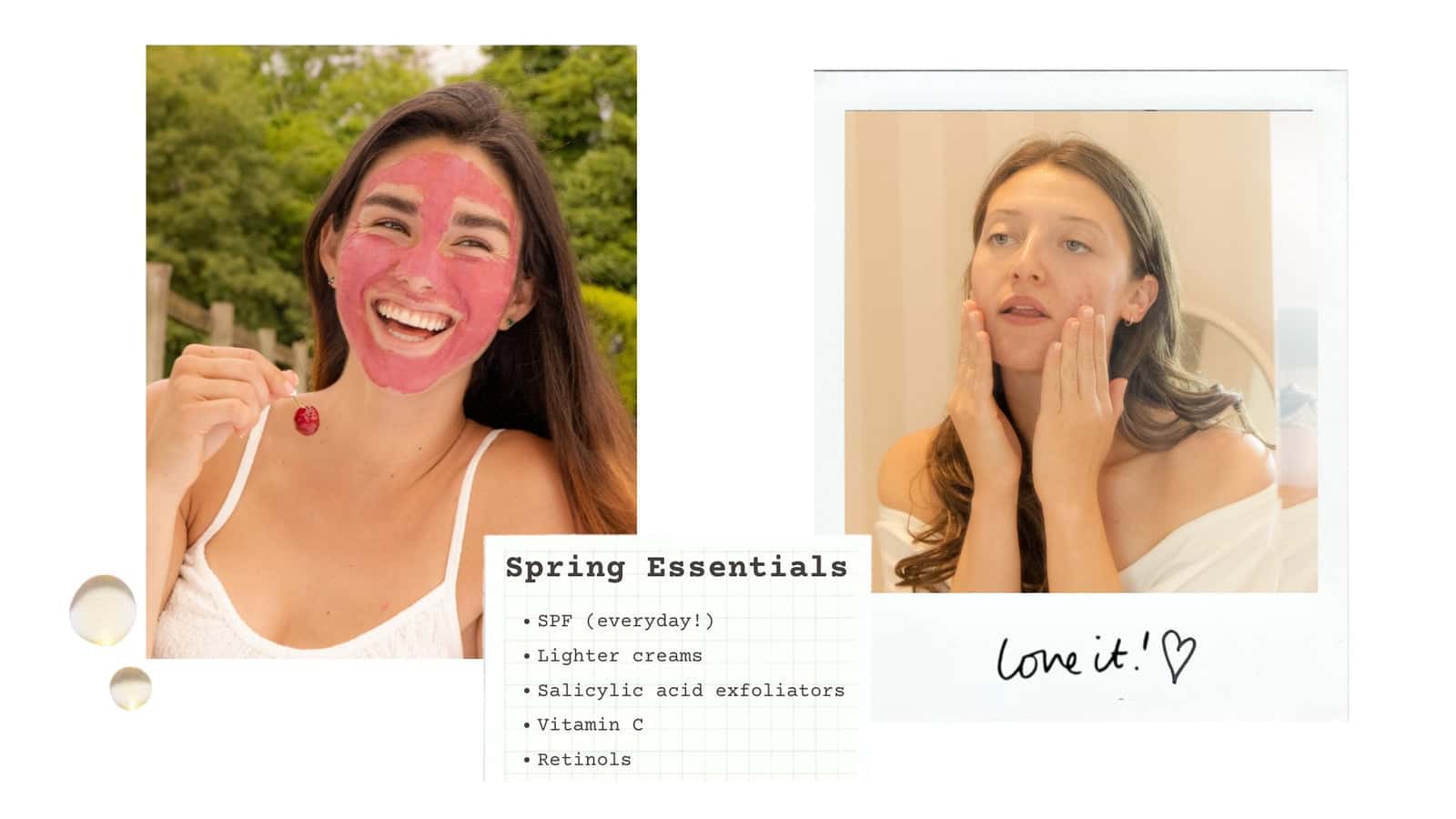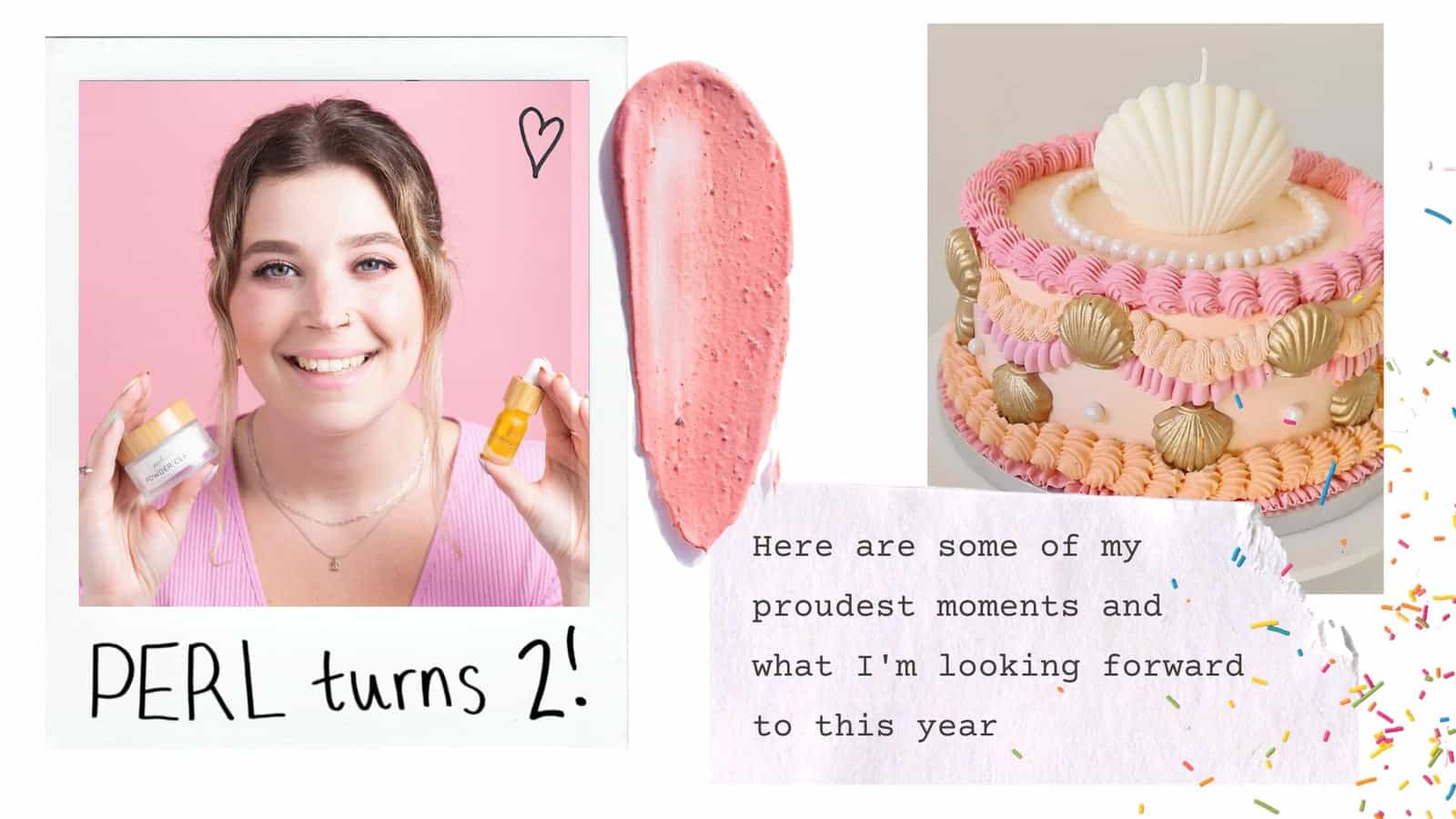
What's my skin barrier, and how does it get damaged?
So what's my skin barrier?
It's your "stratum corneum"
Essentially it's just the top layer of your skin, and forms your first barrier of defense against harmful toxins, germs and allergens.
When your skin barrier is healthy, it will natural exfoliate and replenish itself to keep the moisture layer intact and protected.
When these outer layers are healthy, skin feels soft, supple and plump. But if these outer layers are damaged, skin may look dull and feel rough or dry.
How do you know if you've damaged your skin barrier?
Break outs
You may be seeing more active acne, or sudden spots popping up on your skin more often.
Dry and dull
Your skin may feel dry, tight and scaly or even just a bit lifeless. Perhaps your makeup isn't sitting well on your skin and you're seeing dry patches appear. This could be especially noticeable if you usually have oiler skin.
Sensitivity and redness
Your skin may feel more responsive to harsh chemicals in your products, such as fragrances or chemical exfoliators. Or you may feel your skin is getting sunburnt quickly, or looking more flushed and red than usual.
How have you damaged your skin barrier?
There can be so many reasons, and it's often hard to pinpoint the exact cause. It could even be a combination of reasons leading to overexposure.
Overwashing or over-exfoliating (and harsh products)
We all know to cleanse our faces regularly - but sometimes we can get too much of a good thing. Washing your face too frequently with harsh cleansers and makeup removers can strip your skin of essential moisture.
Likewise, exfoliating your skin too much can also strip your skin, and can even leave your skin too exposed with the top protective layer being damaged.
Stress and lack of sleep
Now this is a hard one to fix sometimes, and we all go through periods of stress and this can play havoc on our skin. Recognising that your life may be affecting your skin is the first step to seeking a solution.
Pollution and sun damage
Pollution and germs play havoc with our skin, which is why protecting your skin daily is so important. Cleanse your skin when you come home, and make sure you're using your moisturiser and SPF everyday.
Ageing and genetics
Unfortunately we can't all be blessed by the good skin gods (I know I'm certainly not!), and it's hard to look around at everyone you know and feel like you're the only one struggling with your skin. Sometimes you do have to just accept your skin always will be that little bit more sensitive, but finding a routine that helps you will help you to remain confident.
Protecting your skin by using SPF and staying out of the direct sun can help to keep your skin looking and feeling more youthful too.
So how do you repair your skin barrier?
Pare back your routine
The first thing you should do if you think you've damaged your skin barrier is pare back your routine to the complete basics. Cut out any newer products you've just started using, and press pause on a 10 step routine for a while.
Stay away from exfoliators - especially physical exfoliators as these should never be used on your face (we all know about the dreaded St Ives Walnut Scrub!).
Keep your routine to just a make up remover (an oil based cleansing balm is perfect), a cleanser, moisturiser and SPF.
Applying a clay mask can help draw out impurities and harmful toxins, regenerating your skin from within allowing the moisture barrier to repair itself. The PERL British Pink Clay Mask allows your to customise your addition of Illuminating Oil, meaning you can create a more hydrating mask than regular clay masks.
Moisturise regularly
To replenish the lost moisture in your skin, ensure you're using a hydrating moisturiser frequently in your routine. A hyaluronic acid is an ideal addition as it can hydrate whilst being really light on the skin. Following up with a facial oil locks in that much needed moisturiser and ensures it is absorbed.
Try not to wear make up
Of course this isn't always possible and is completely up to personal preference. Limiting the amount of products and subsequently how much washing you will need to do will help your skin replenish lost moisture and repair quicker. Perhaps try using a tinted moisturiser instead of a regular foundation.
Use repairative ingredients
- Ceramides
- Niacinamide
- Hyaluronic acid
- Glycerol
And most importantly - don't worry! Our skin goes through phases and sometimes it can feel like it's working against us. But showing our skin a little bit of love, and being super gentle can help get your skin back to a place where you're looking dewy and glow-y!



Leave a comment
This site is protected by hCaptcha and the hCaptcha Privacy Policy and Terms of Service apply.